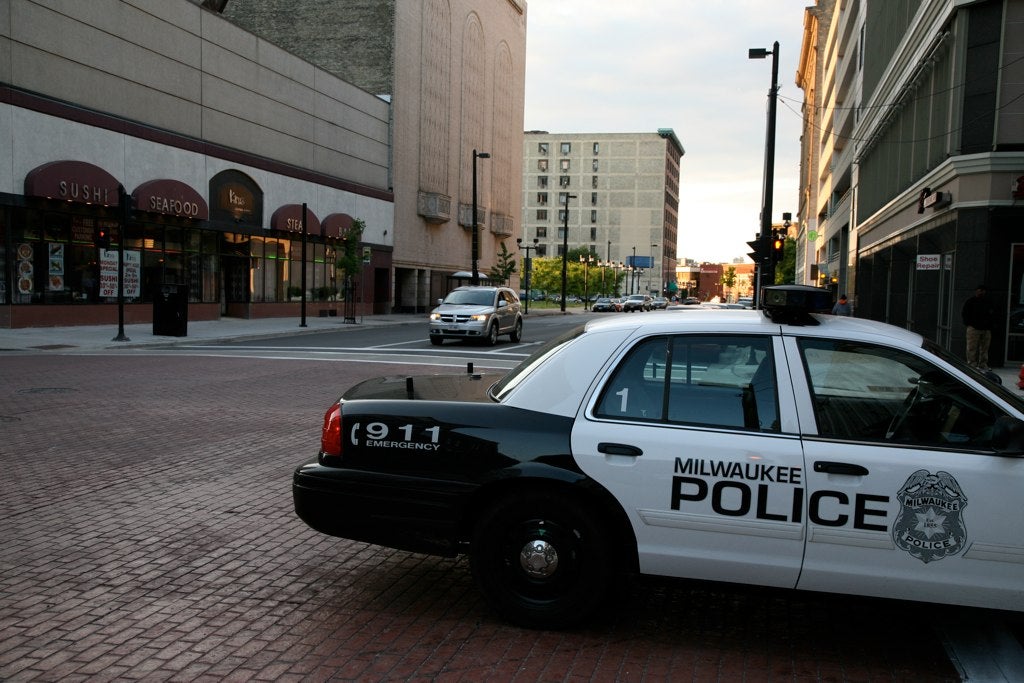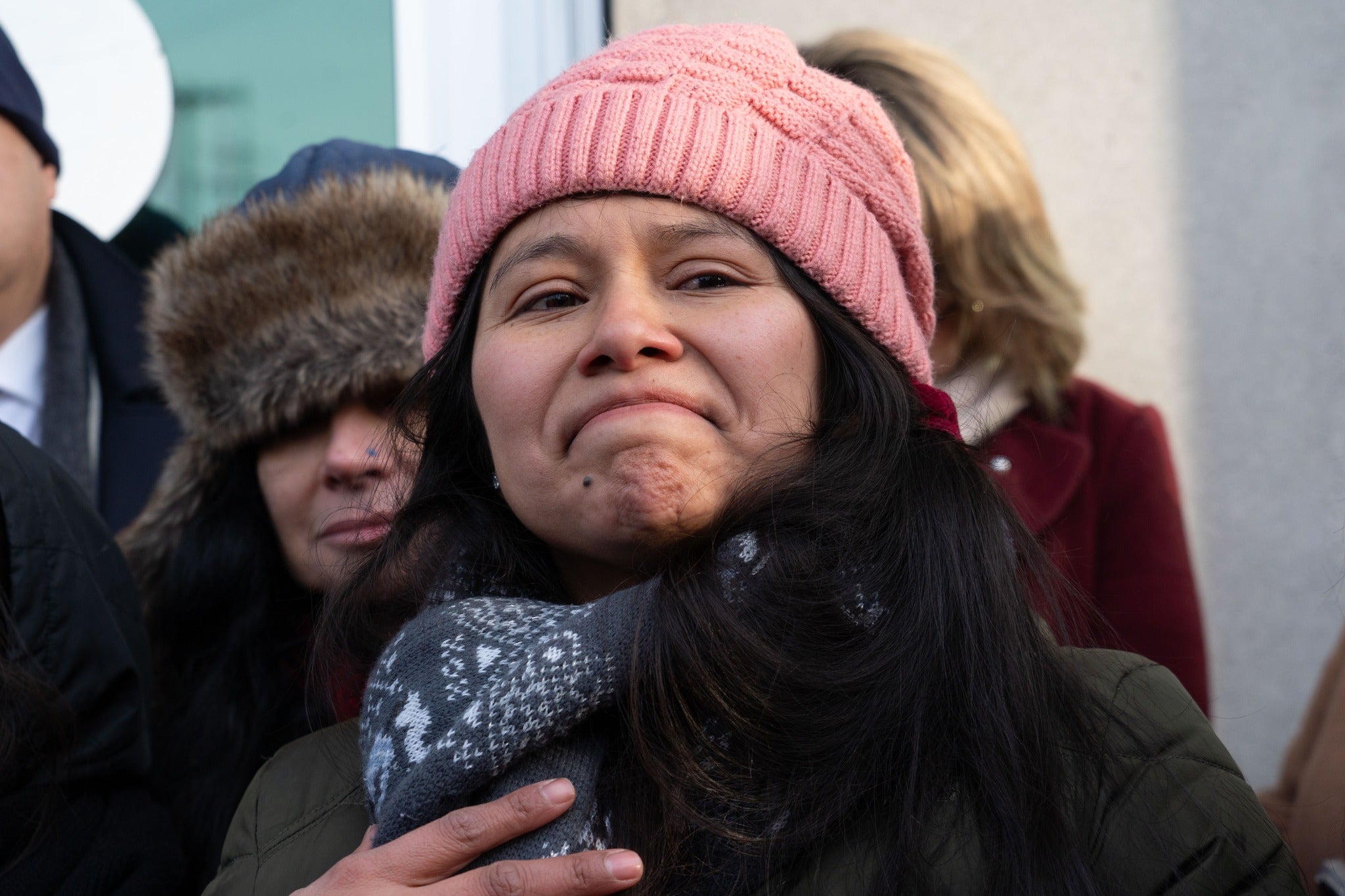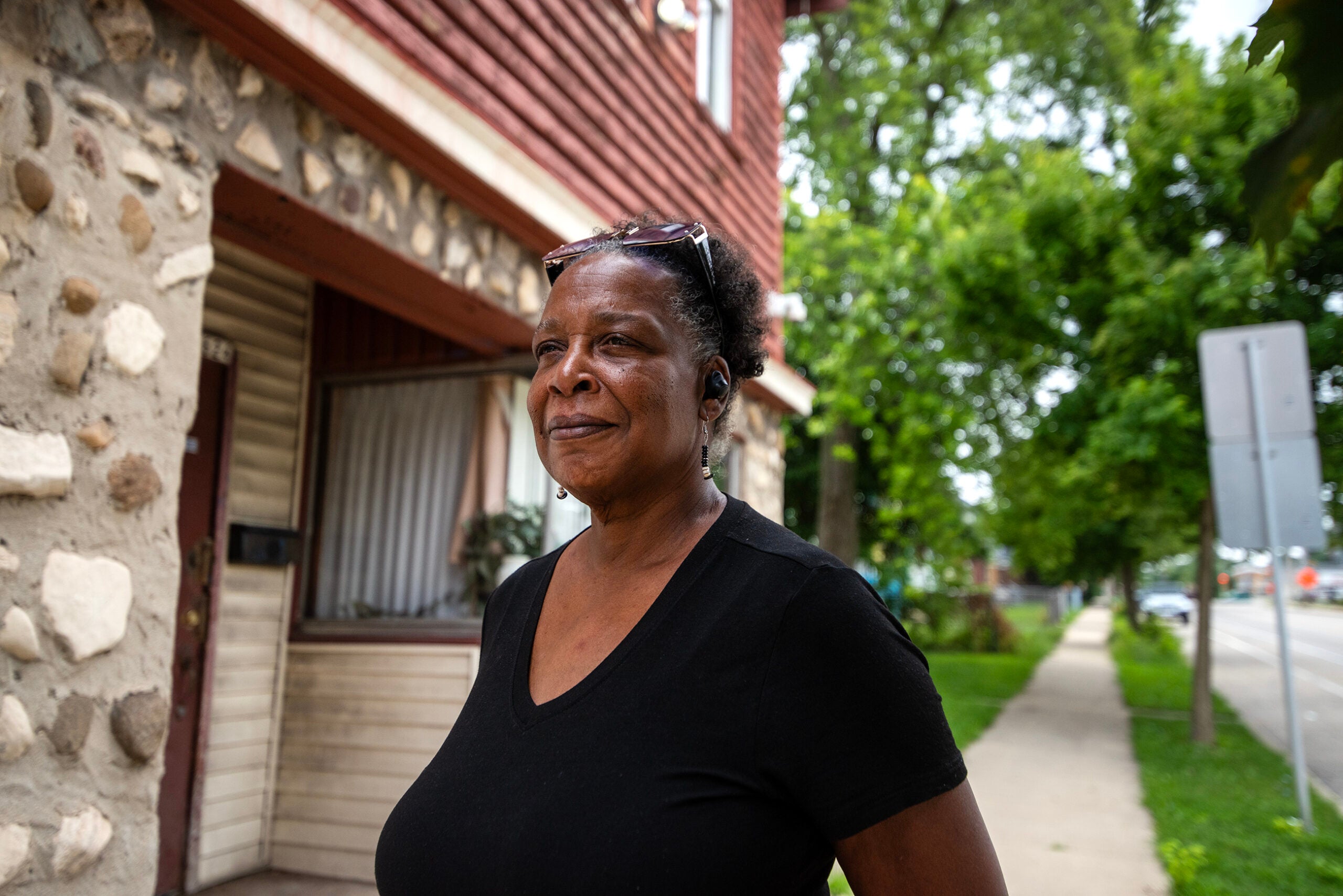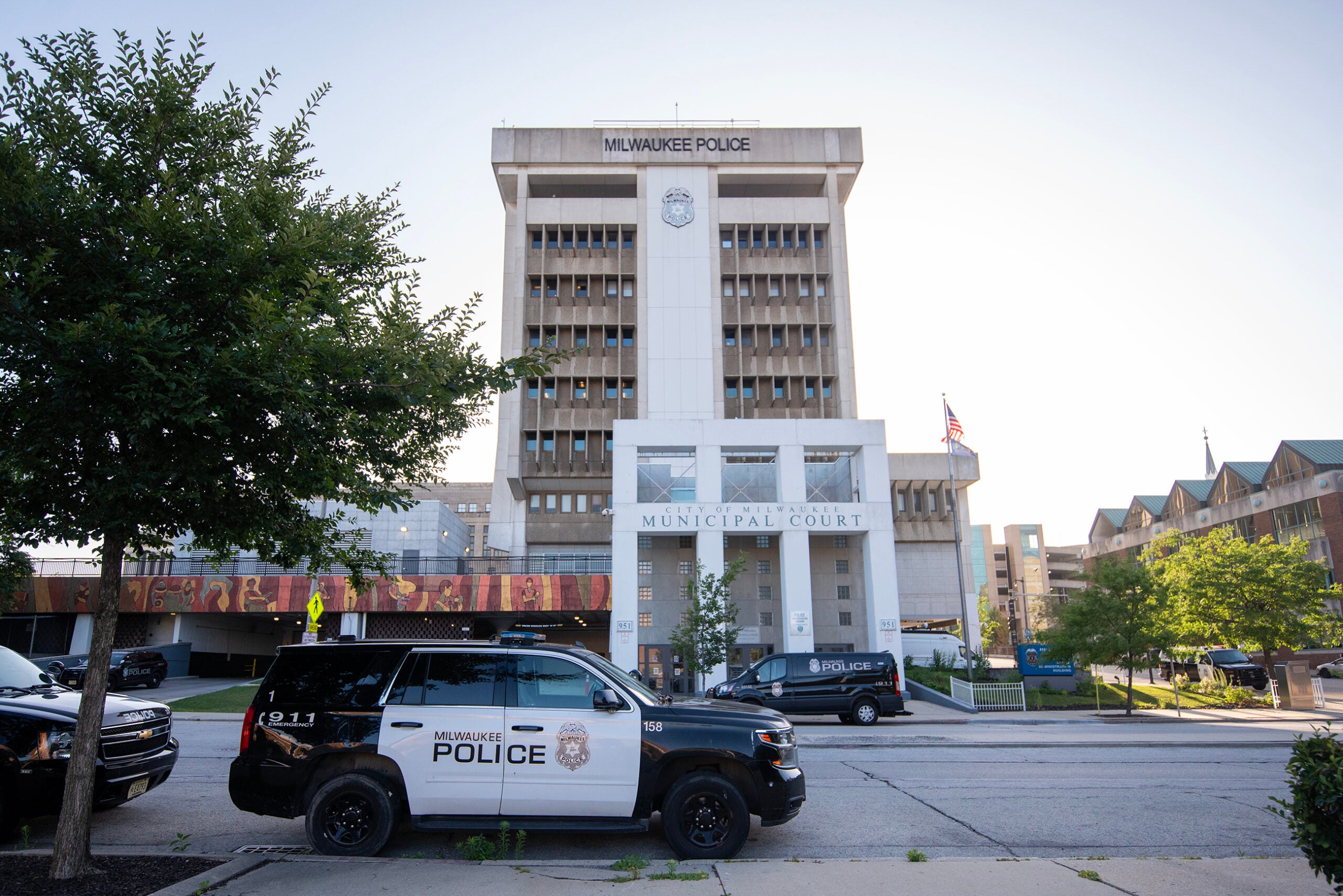Nora Sheridan was at work when she got a call from Milwaukee Police saying something happened at her home on the city’s north side and the police needed to go inside to investigate. She put down the phone and rushed home.
“The detective was kind of being vague,” Sheridan recalled. “He said that the house is intact but he noticed that the back door of the car that was sitting in the backyard was open, and they found my son in here, and he had multiple gunshot wounds.”
Rainier Sheridan was shot while getting something out of the car behind the home on the 4400 block of North 64th Street. He was able to get back into the house before being taken to a hospital where he died that same day, Feb. 16. He was only 36 years old. Five months later, and there has been no arrest in his homicide case.
News with a little more humanity
WPR’s “Wisconsin Today” newsletter keeps you connected to the state you love without feeling overwhelmed. No paywall. No agenda. No corporate filter.
Sheridan carries that burden with her daily.
“Sometimes I feel like I’m going to sink into depression,” she said. “The only thing that’s keeping me motivated is trying to find out the truth on what happened to him.”
There were more than 150 homicides last year, and close to 70 this year. Last year and this year, more than 80 percent of the victims were shot, according to data from the Milwaukee Police Department, Milwaukee Homicide Review Commission, court records and Milwaukee Journal Sentinel analysis.
Each loss of life presents a unique challenge for family and friends left to grapple with the loss.

Milwaukee Police Chief Ed Flynn Susan Walsh/AP Photo
The ripple effect of violence is not lost on city officials. Milwaukee Police Chief Ed Flynn spoke at a recent event in Milwaukee aimed at connecting city officials with faith leaders to help spread peace. He acknowledged the widespread impact violence has on communities.
“Violence takes a toll on all of us,” Flynn said. “It takes a toll on the active victims of violence, the psychology of communities and on the police. Don’t think it doesn’t.”
The impact from Rainier Sheridan’s murder reverberated throughout the neighborhood. Nora Sheridan recalls a night after her son’s death when she heard gunshots. She did not call the police and the next day she found out neither did her neighbor.
“We were scared because they might come and retaliate,” Sheridan said. “You never know if the police come directly to your house and somebody might be watching. There are people who just don’t want to get involved or who don’t want to talk. I think we support each other in fear.”
Sheridan participates in grief support programs to help cope with her loss, but she is struggling financially. She was laid off from a company where she worked for 15 years and now makes a third of her previous income.
Janice Gorden, the founder of a burial fund for victims of the violence in the city, said violence impacts the family way before it reaches the community.
“I had this one young lady who lost her child,” Gorden said. “She was so sad, she couldn’t go to work. She lost her house. She put her furniture in storage, the storage flooded, so she lost her furniture. Talk about a ripple effect. I mean we didn’t even get to her community.”
Gorden said she tries to support those affected by violence financially and in many other ways.
“The whole goal of this agency is to get people back on their feet and get them started in their new norm, because it is a new norm,” she said. “When you have a child that’s 30, you had a child for 30 years, and now they’re gone.”
Sheridan is still working on getting to her new norm, and getting there depends on leaving Milwaukee.
“Why am I staying here when I know what happened to him?” Sheridan said. “But then on the other hand, I would love to be part of a solution to help our young people to find a purpose in life instead of resorting to killing somebody over something senseless.”
The gun violence usually peaks in the summer. Last August, Milwaukee endured its deadliest month in 25 years.
Sheridan said before her son’s murder she never paid attention to gunshots, but that’s changing. She said she will still try to have an impact on people in the community.
“Since this happened to him, I’m starting to become more aware of it,” she said. “Last year, there was an explosion of children, and I try to interact with the children during the summer. I’m always out there.”
Rainier left behind two children, ages 7 and 15. The two children have handled the loss of their dad differently, but are trying to move forward. Sheridan said her faith and the support of her neighbors have allowed her to carry on.
Part of moving on for Sheridan includes spending the summer with her grandchildren, the first without their dad.
Editor’s Note: This story is part of a three-part series on gun violence in Milwaukee.
Wisconsin Public Radio, © Copyright 2025, Board of Regents of the University of Wisconsin System and Wisconsin Educational Communications Board.







